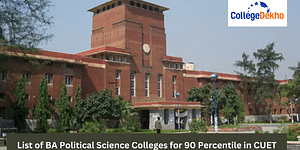GRC Sangrur BCA Courses & Fees 2025
GRC Sangrur offers a 3 Years BCA for Information Technology aspirants. GRC Sangrur B.C.A. admission 2023 is based on PSEB 12th, CBSE 12th. Students who passed 12th can apply for the GRC Sangrur admissions.
The GRC Sangrur BCA course fee is 90,390 INR (Yearly).
1 Course is offered by GRC Sangrur
B.C.A.
GRC Sangrur BCA Highlights 2025
| Highlights | Details |
| Duration | 3 Years |
| Annual tuition fee | 90,390 USD (Yearly) |
| Eligibility criteria | To be eligible for the B.C.A. (Bachelor of Computer Applications) degree at Government Ranbir College Sangrur, candidates must have completed their 10+2 education from a recognized board with a minimum aggregate of 50%. Additionally, they should have studied Mathematics as a compulsory subject in their 10+2 curriculum. The selection process is merit-based, and candidates are required to meet the cutoff set by the college. Meeting the eligibility criteria allows students to apply for admission to this esteemed program, which offers a comprehensive curriculum in computer applications and equips them with the necessary skills for a successful career in the field of technology. |
| Accepted entrance exams | PSEB 12th, CBSE 12th |
GRC Sangrur BCA Admission 2025
GRC Sangrur BCA seats are filled on the basis of PSEB 12th, CBSE 12th. Candidates need to meet the basic eligibility criteria related to qualifying marks, age, subjects studied for GRC Sangrur BCA admission.
For a comprehensive awareness of the fees, eligibility criteria of BCA at GRC Sangrur, and the selection process for admission, refer to the table below.
GRC Sangrur BCA Admission 2023 - Eligibility & Selection Criteria
| Degree | Eligibility Criteria | Tuition Fees |
| BCA | To be eligible for the B.C.A. (Bachelor of Computer Applications) degree at Government Ranbir College Sangrur, candidates must have completed their 10+2 education from a recognized board with a minimum aggregate of 50%. Additionally, they should have studied Mathematics as a compulsory subject in their 10+2 curriculum. The selection process is merit-based, and candidates are required to meet the cutoff set by the college. Meeting the eligibility criteria allows students to apply for admission to this esteemed program, which offers a comprehensive curriculum in computer applications and equips them with the necessary skills for a successful career in the field of technology. | 90,390 USD (Yearly) |
GRC Sangrur BCA Application Process 2025
PSEB 12th application form can be filled in Online. Aspiring candidates can fill out the GRC Sangrur BCA application form on the http://www.ranbircollegesangrur.org/ of GRC Sangrur
Follow the given steps to understand BCA application process of GRC Sangrur :
- Step 1: Visit the official website of GRC Sangrur and locate the registration tab.
- Step 2: Now click on the registration tab and provide the necessary details to create a profile.
- Step 3: Upon successful registration, a confirmation message will be sent to the registered email ID and mobile number.
- Step 4: At the next stage, pay the registration fee to access the E-Prospectus.
- Step 5: Post successful fee payment, the application process is completed.
Documents required for GRC Sangrur BCA Admission
- Marks sheet of class 12th standard
- Marks sheet of class 10th standard
- Transfer certificate (if required)
- Character certificate
- Passport-size photographs
GRC Sangrur BCA Fees 2025
GRC Sangrur BCA fees for all BCA specialisations is 90,390 USD (Yearly).
GRC Sangrur BCA Fees
| Course | Duration | Total Tuition Fees |
| B.C.A. | 3 Years | 90390 USD |
GRC Sangrur BCA Selection Process 2025
GRC Sangrur BCA selection process includes stages like filling the application form, appearing for the PSEB 12th and participating in the counselling process.
Check the stepwise selection process here:
- Register for PSEB 12th
- Take PSEB 12th
- Based on PSEB 12th results, students need to register for GRC Sangrur BCA counselling
GRC Sangrur BCA Ranking 2025
GRC Sangrur BCA Rankings are released by various govt & private agencies/organisations like NIRF, India Today, The WEEK, Outlook, Business Standard, QS Rankings, etc to rank the GRC Sangrur on various parameters including quality of education, overall development of the students, placements, curriculum, facilities, labs, faculty-students ratio, etc.
GRC Sangrur BCA Admission 2025
Admission to the BCA at GRC Sangrur is subject to meeting the eligibility criteria and the candidates have to secure a valid score in CBSE 12th, PSEB 12th. All shortlisted candidates have to complete the GRC Sangrur BCA admission process by getting their documents verified and paying the admission fee.
GRC Sangrur BCA Application Process
GRC Sangrur BCA application form has to be submitted online by visiting the official website. Candidates aspiring to take admission to the BCA course at GRC Sangrur have to first check and meet the eligibility criteria and then proceed further with the application process.
Steps to fill GRC Sangrur BCA application form:
- Step 1: Visit the official website of GRC Sangrur and click on ‘apply online’.
- Step 2: Now, you will be redirected to the admission page of GRC Sangrur. Complete the registration process and create a profile.
- Step 3: Fill in all details available in the GRC Sangrur BCA application form.
- Step 4: Now pay the GRC Sangrur BCA application fee and click on submit button.
- Step 5: After the submission, keep a hard copy of GRC Sangrur BCA Application Form.
Documents Required for GRC Sangrur BCA Admission:
- Marks sheet of class 10th standard
- Marks sheet of class 12th standard
- Transfer certificate (if required)
- Character certificate
- Passport-size photographs
Top Courses at Government Ranbir College
GRC Sangrur Reviews
Overall: When embarking on the journey of higher education, choosing the right college is a pivotal decision. Amidst the sea of options, an Overall College Evaluation serves as a guiding beacon, illuminating the path towards academic excellence and personal growth.At its core, the Overall College Evaluation encompasses a meticulous scrutiny of every facet that defines a collegiate experience. From academic prowess to campus culture, from faculty expertise to student support services, this evaluation leaves no stone unturned
Infrastructure: In the bustling landscape of higher education, the quality of college infrastructure stands as a cornerstone of academic excellence and student experience. A comprehensive evaluation of college infrastructure reveals not just brick and mortar, but the very foundation upon which students' educational journey unfolds.At the heart of any assessment lies the physical facilities that comprise a college campus. From state-of-the-art lecture halls to well-equipped laboratories, the infrastructure sets the stage for immersive learning experiences. A modern and technologically advanced environment fosters innovation and experimentation, empowering students to push the boundaries of knowledge.Beyond the classroom, a holistic appraisal of college infrastructure encompasses amenities that enrich student life. From libraries stocked with vast resources to recreational centers promoting physical wellness, these facilities nurture holistic development outside academic realms. The availability of comfortable dormitories, dining halls offering nutritious meals, and vibrant student spaces for social interaction contribute to a thriving campus community.Moreover, sustainability and environmental consciousness play an increasingly pivotal role in evaluating college infrastructure. Campuses committed to eco-friendly practices, such as energy-efficient buildings and recycling initiatives, not only reduce their environmental footprint but also instill a sense of responsibility and stewardship among students.Accessibility is another crucial aspect of infrastructure evaluation. Colleges that prioritize universal design principles ensure that all students, regardless of physical ability, can navigate the campus with ease. This commitment to inclusivity fosters a welcoming environment where every individual can fully participate in academic and extracurricular activities.In conclusion, an evaluation of college infrastructure extends far beyond aesthetics; it reflects a commitment to providing students with the resources and environment conducive to their success and well-being. By scrutinizing the physical, technological, and environmental aspects of campus facilities, this assessment empowers prospective students to make informed choices and fosters a culture of continuous improvement within higher education institutions.This review serves as a reminder that college infrastructure is not merely a backdrop but an integral part of the educational journey, shaping experiences and opportunities for generations to come.
Explore More Engineering Colleges in Punjab
By Degree
By Specialization
- Colleges in Sangrur
- GRC Sangrur
- GRC Sangrur Courses & Fees
- B.C.A. (Bachelor of Computer Applications)








